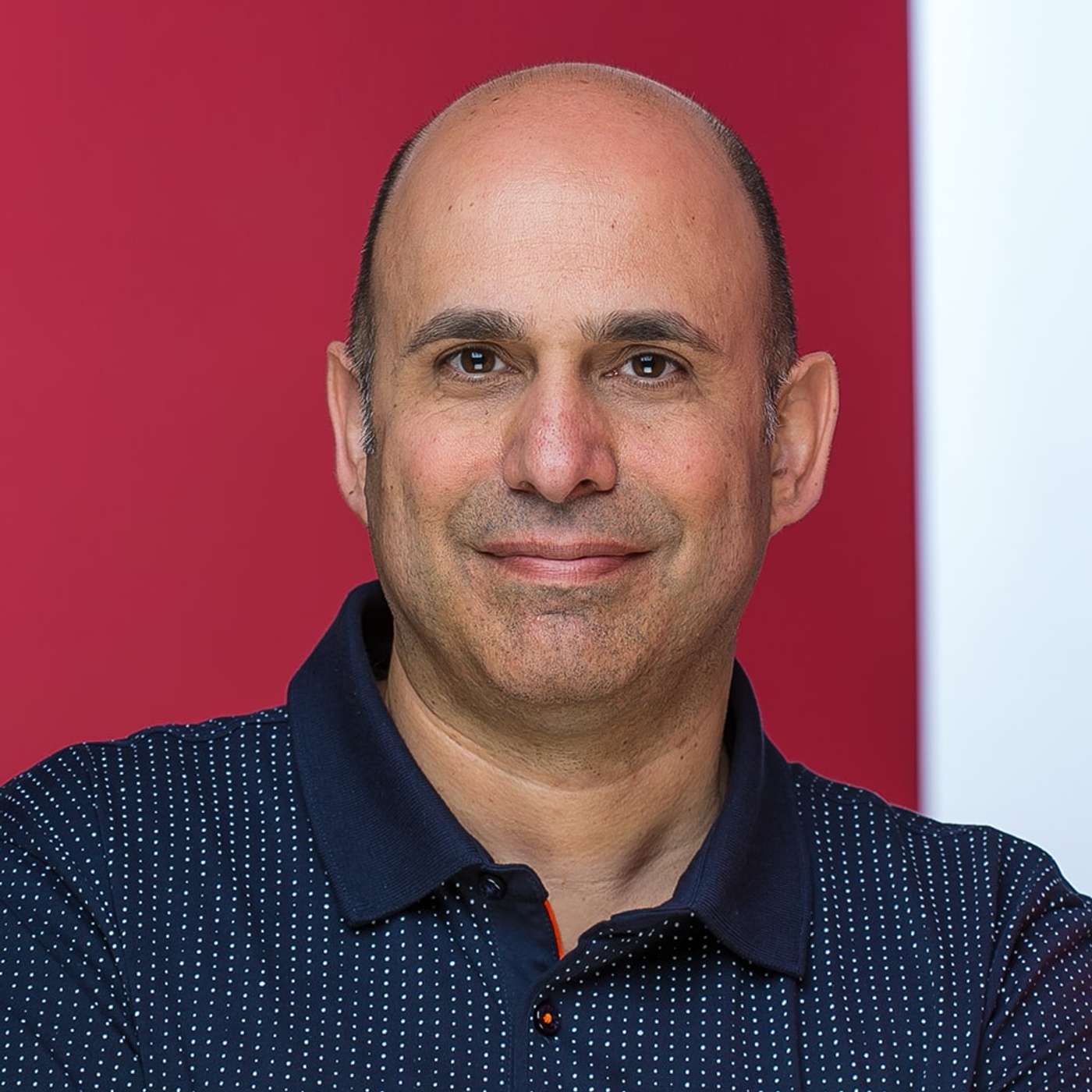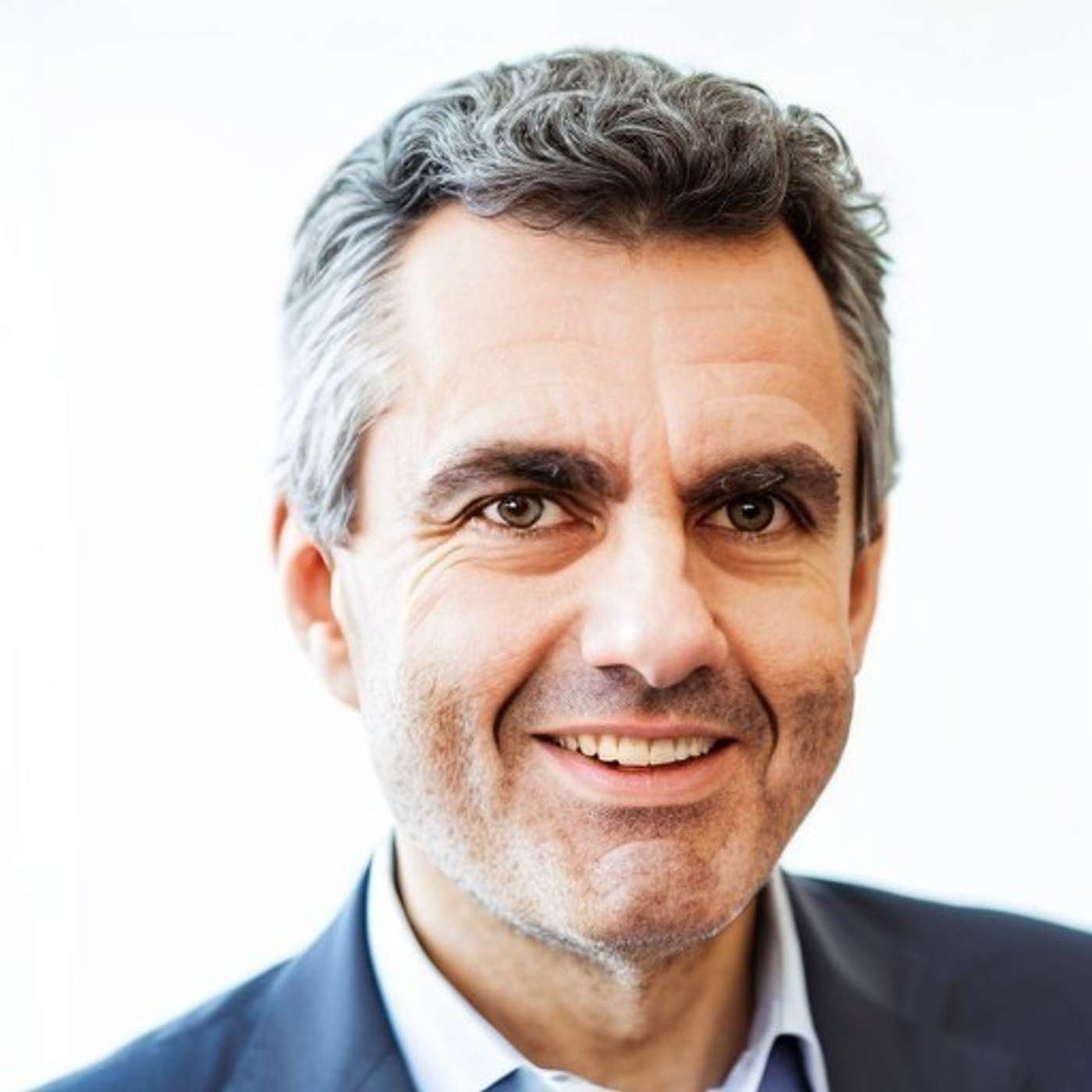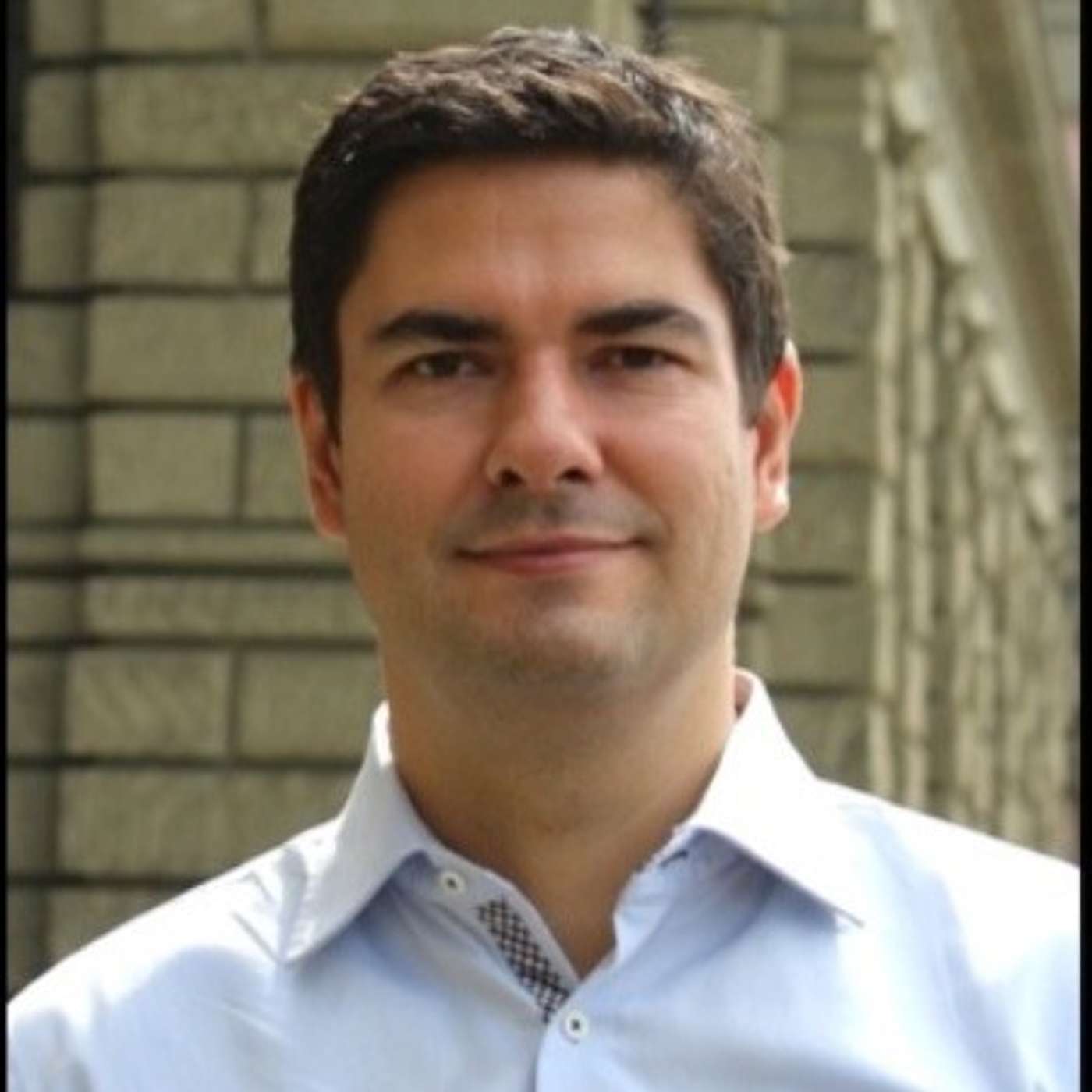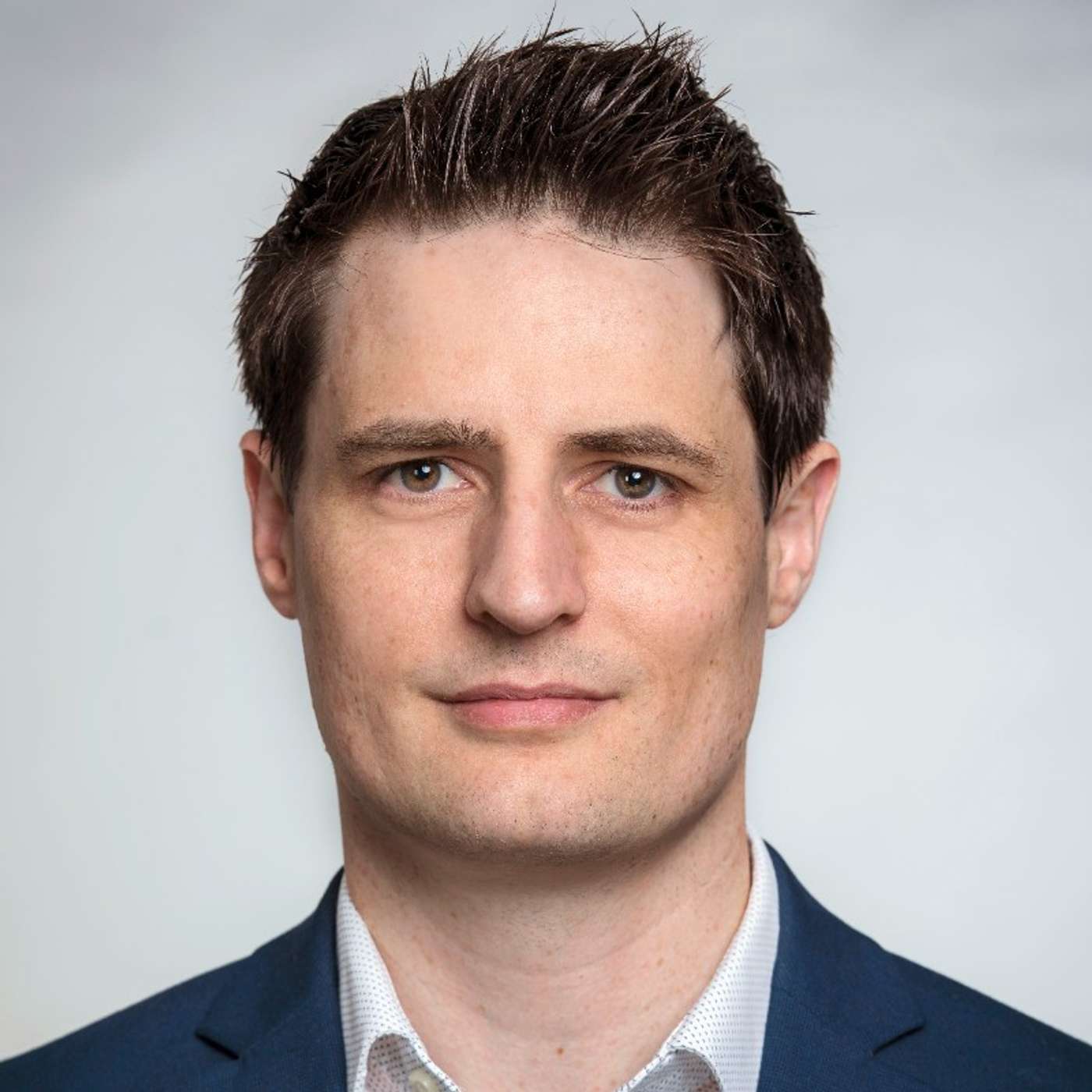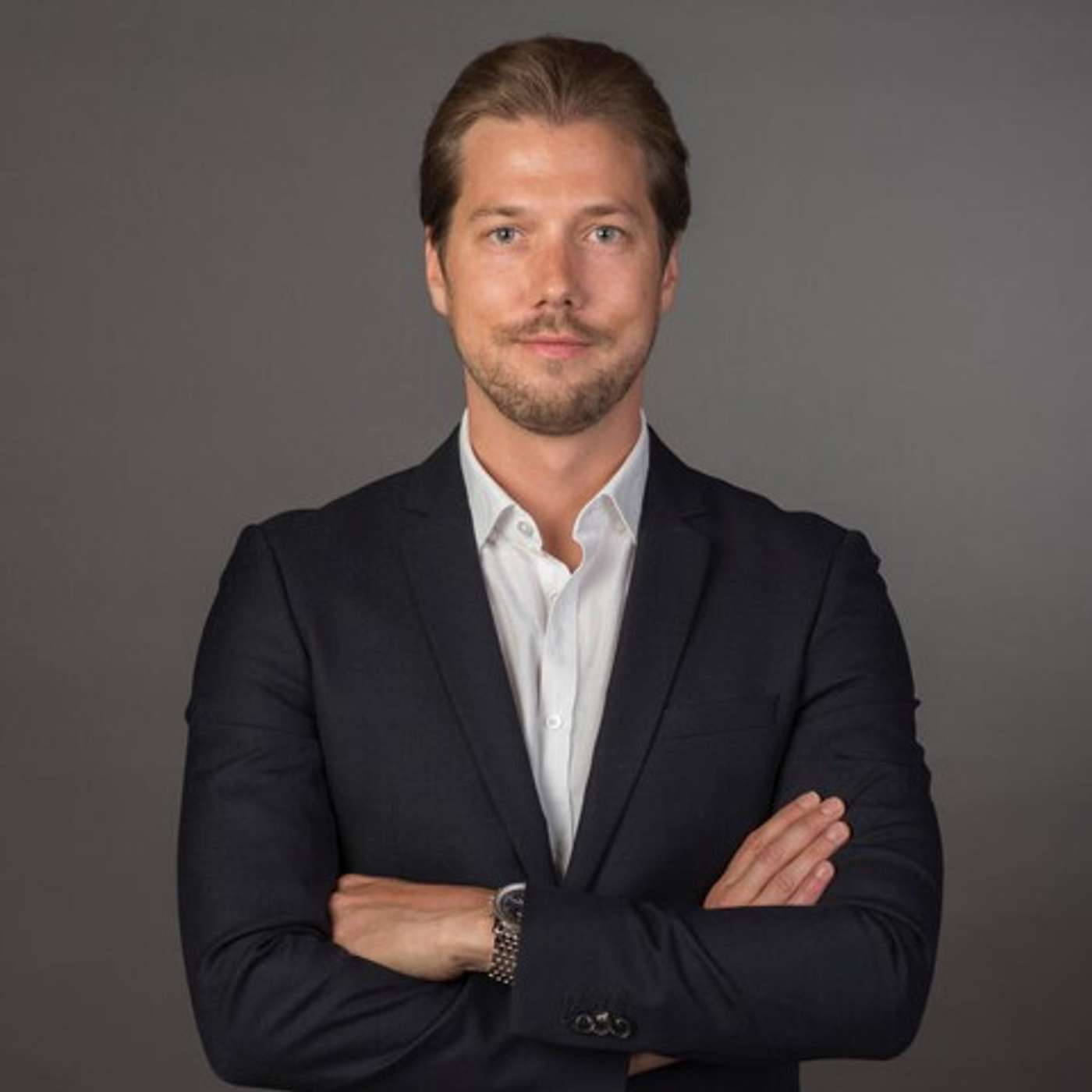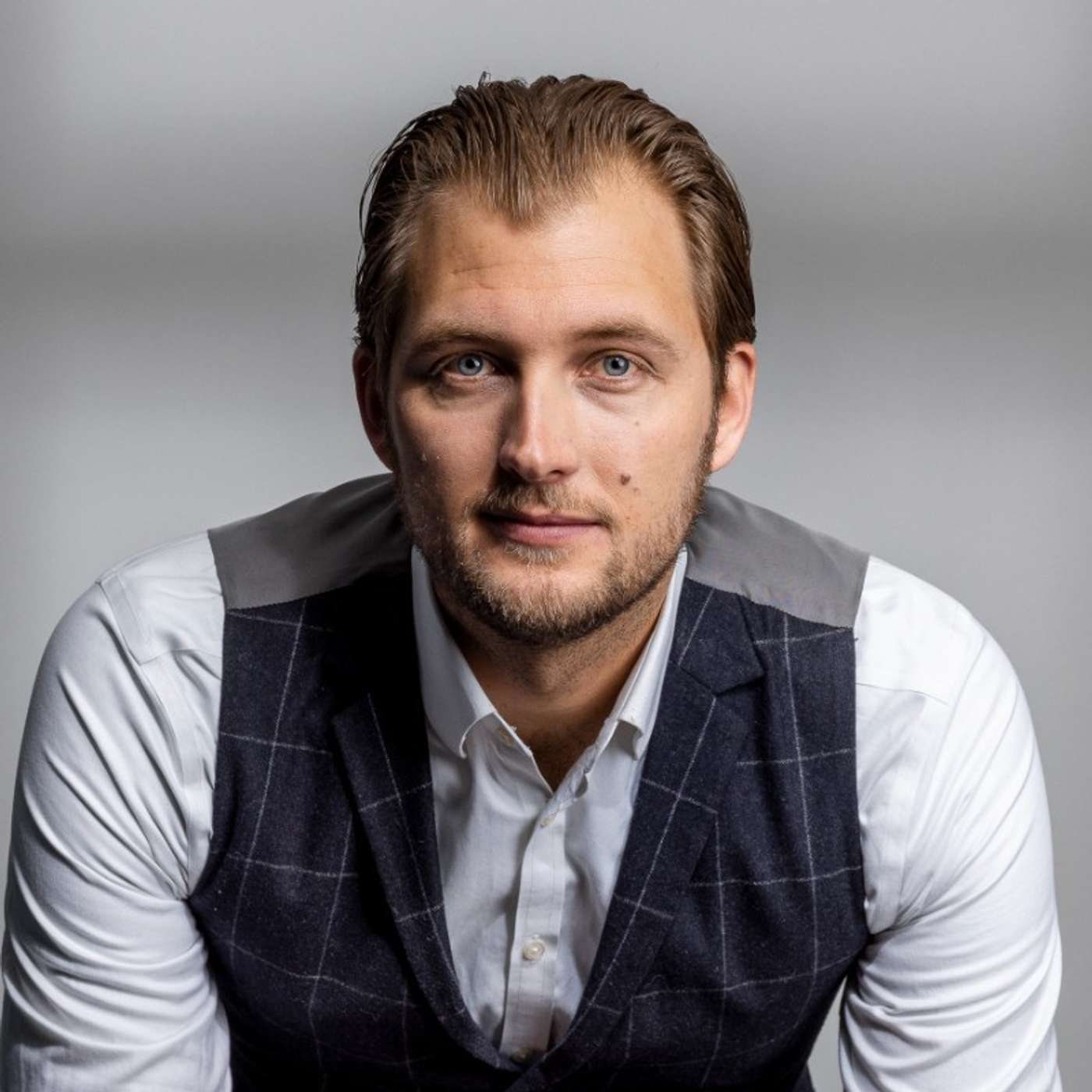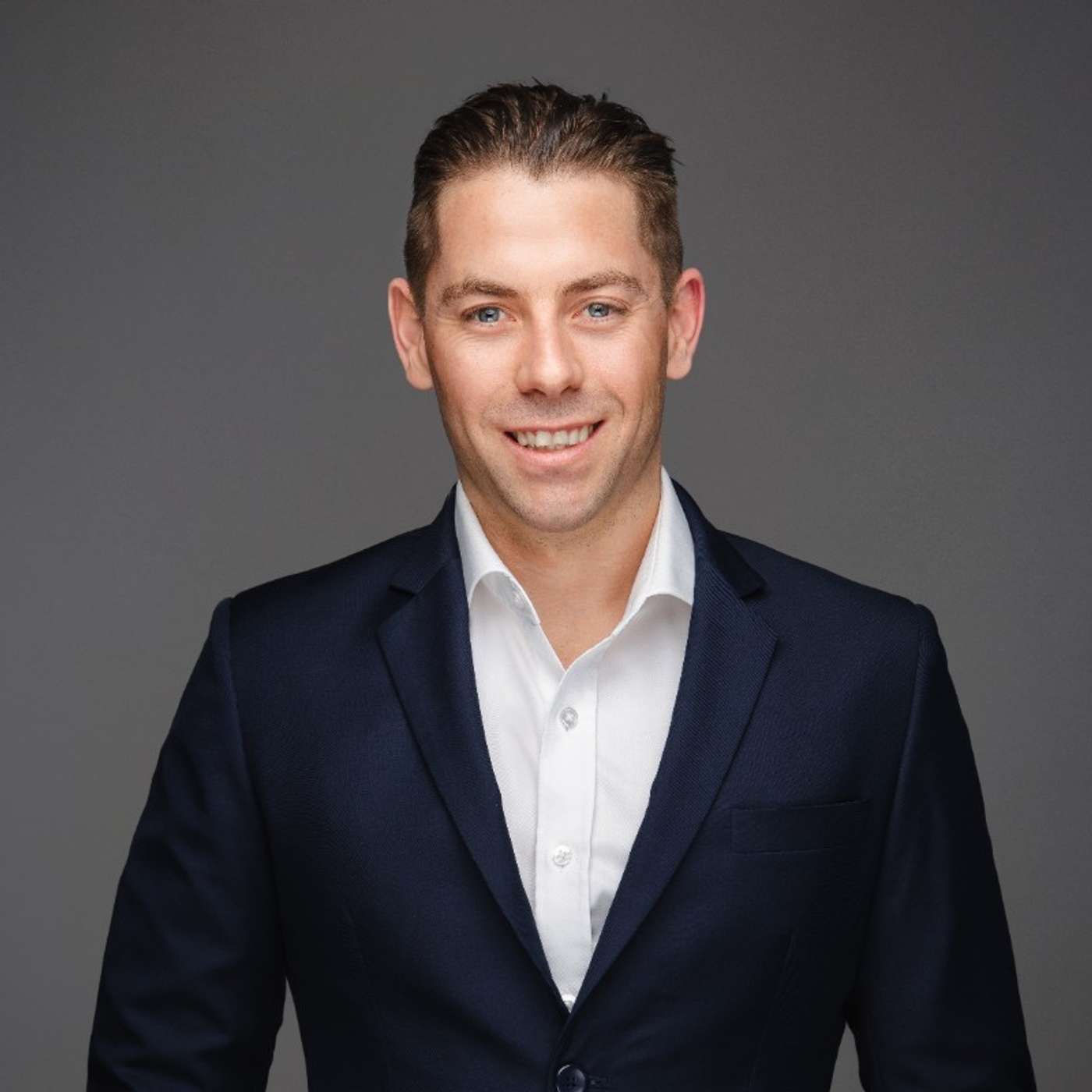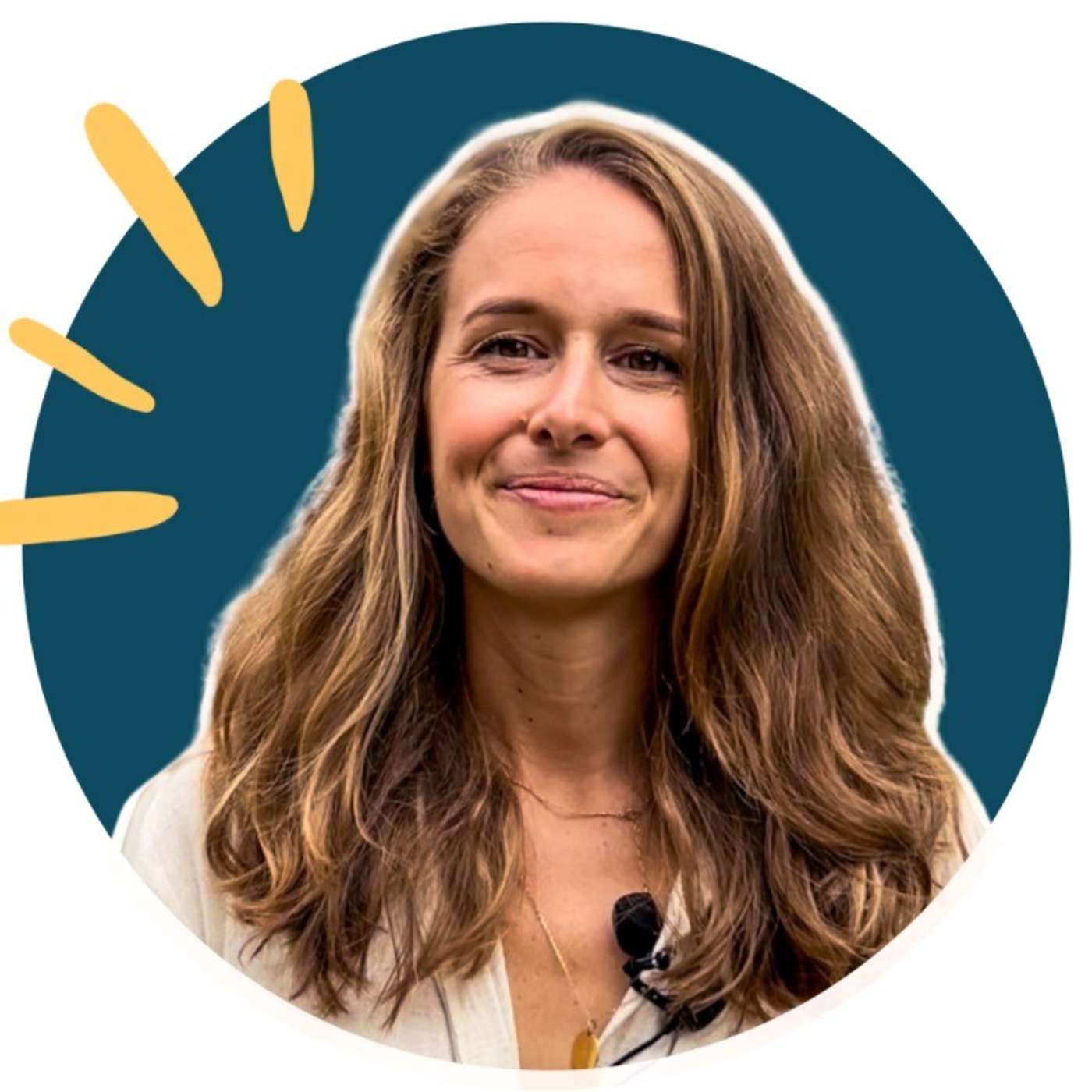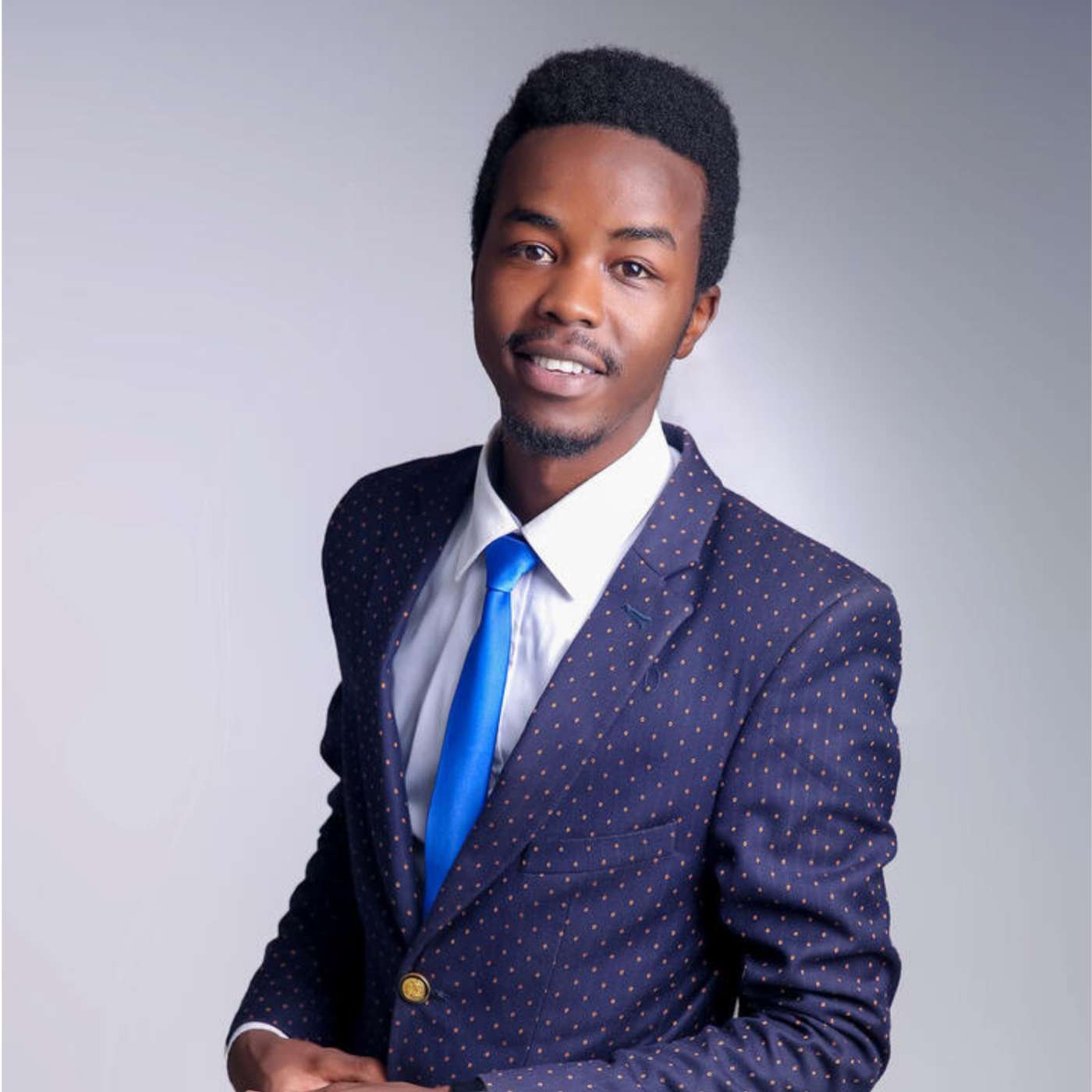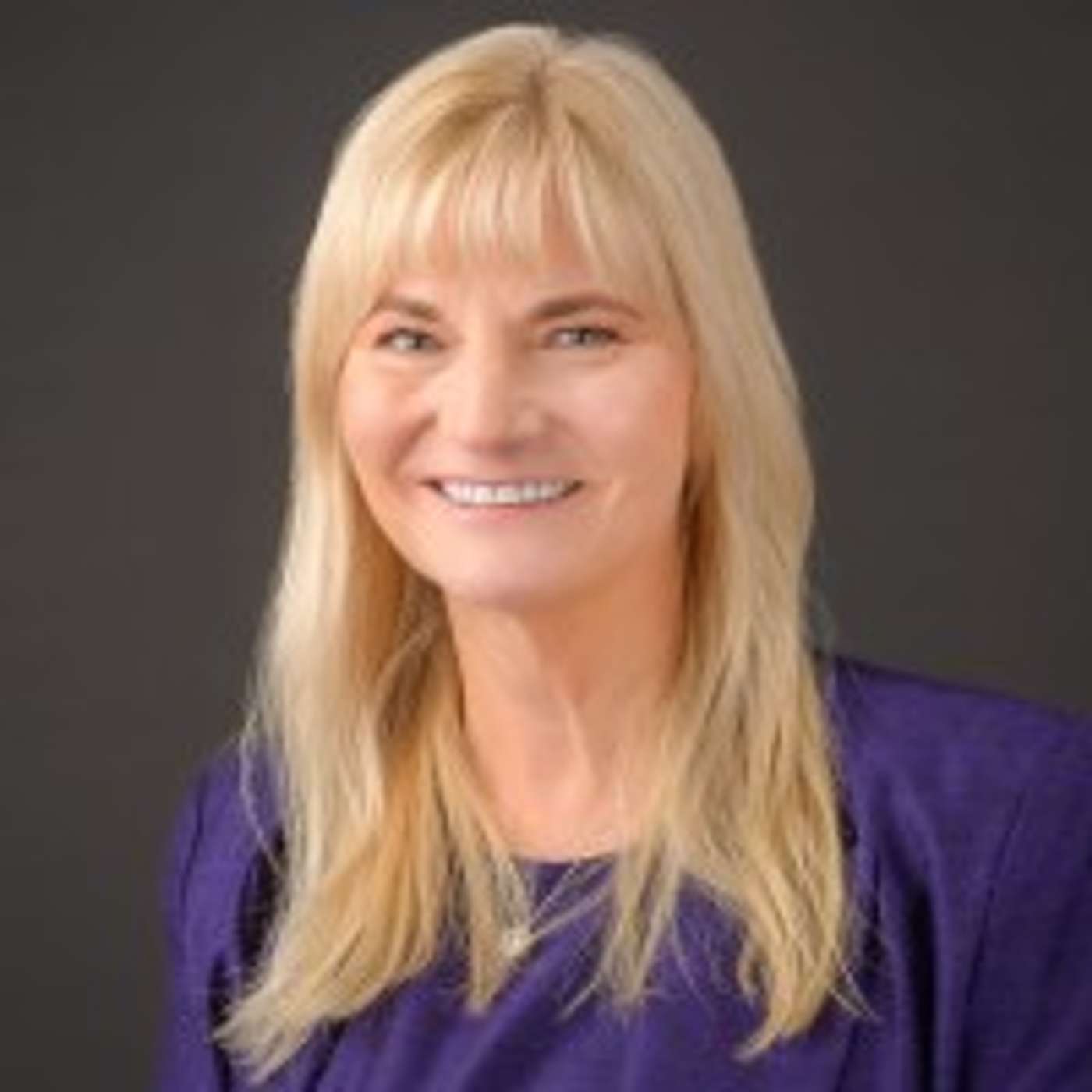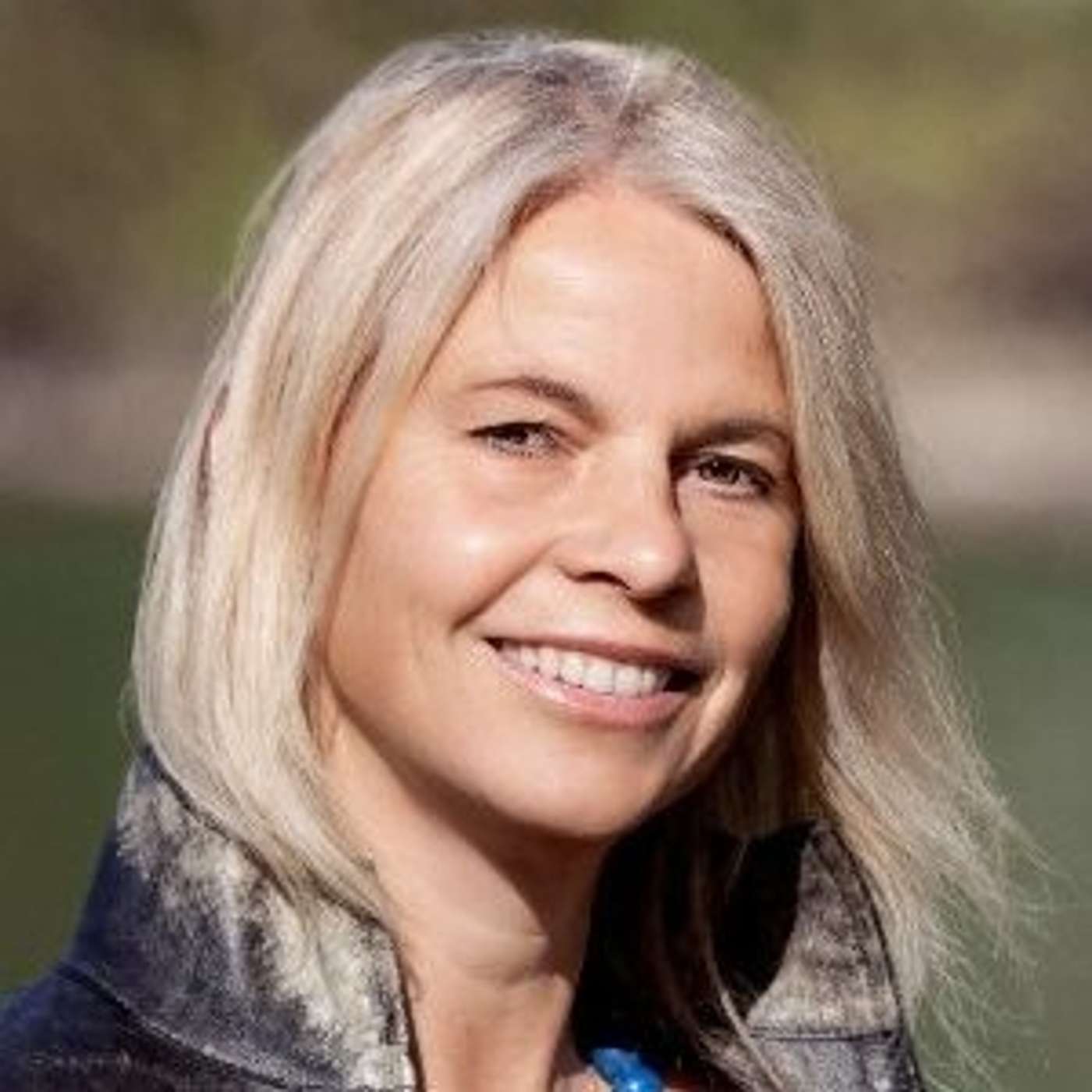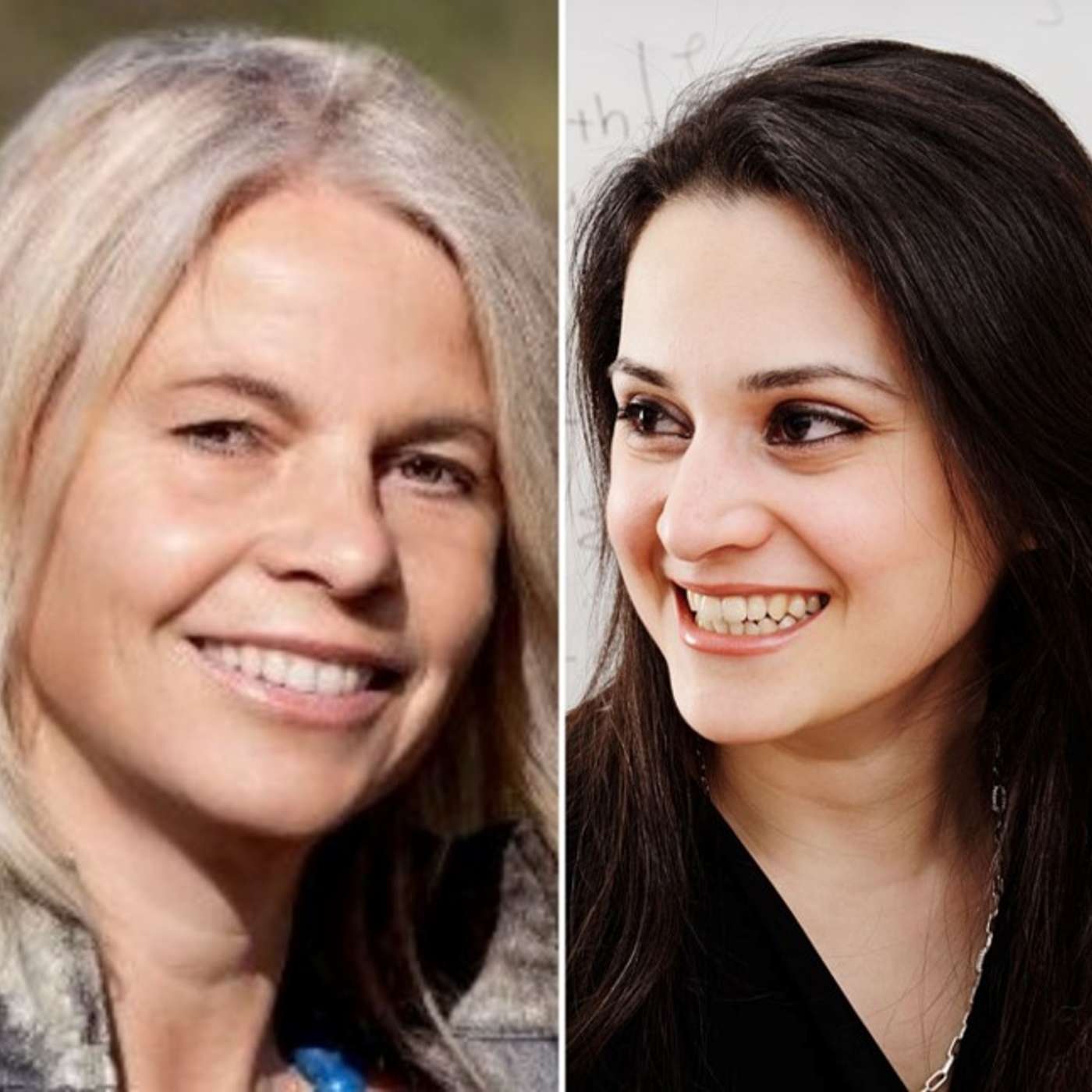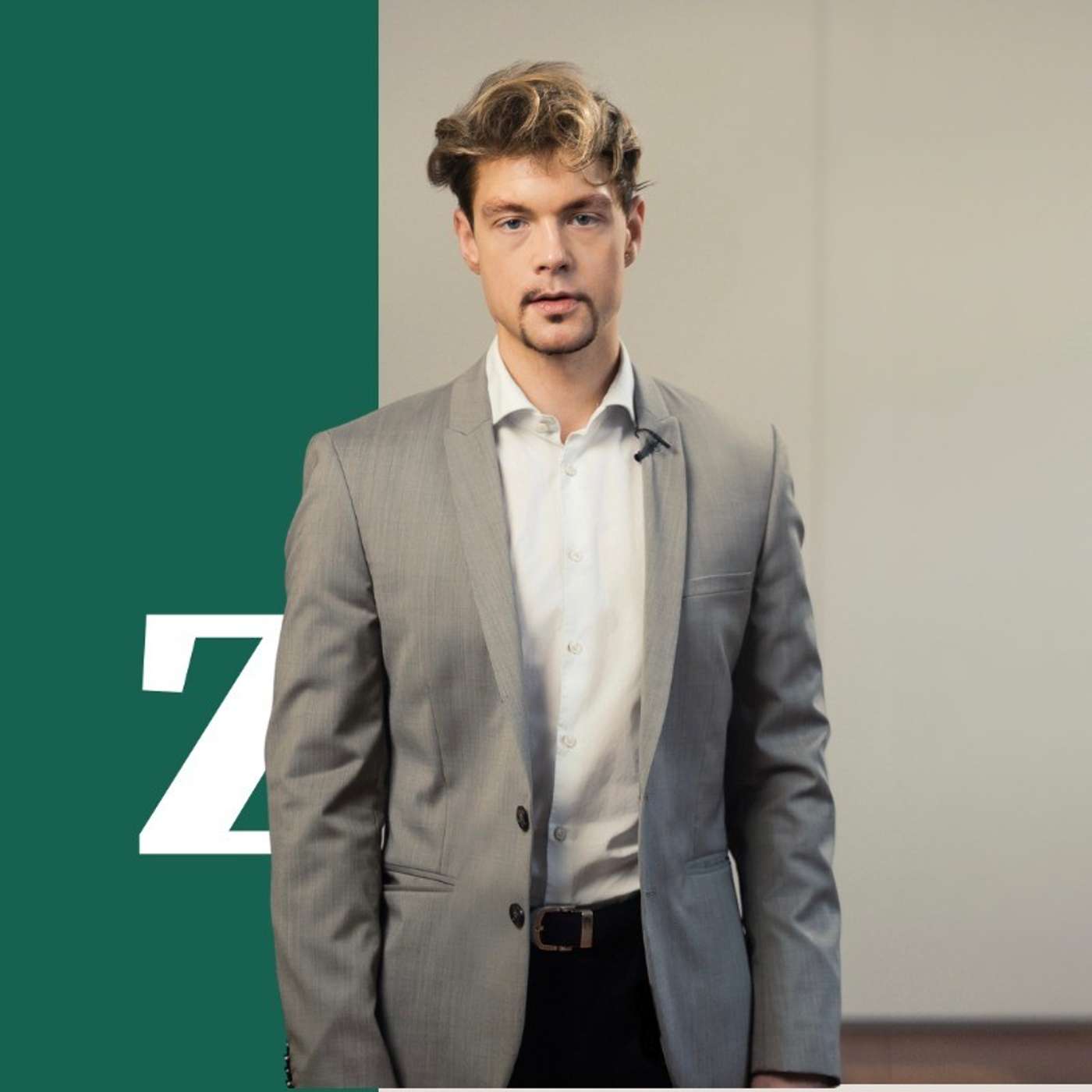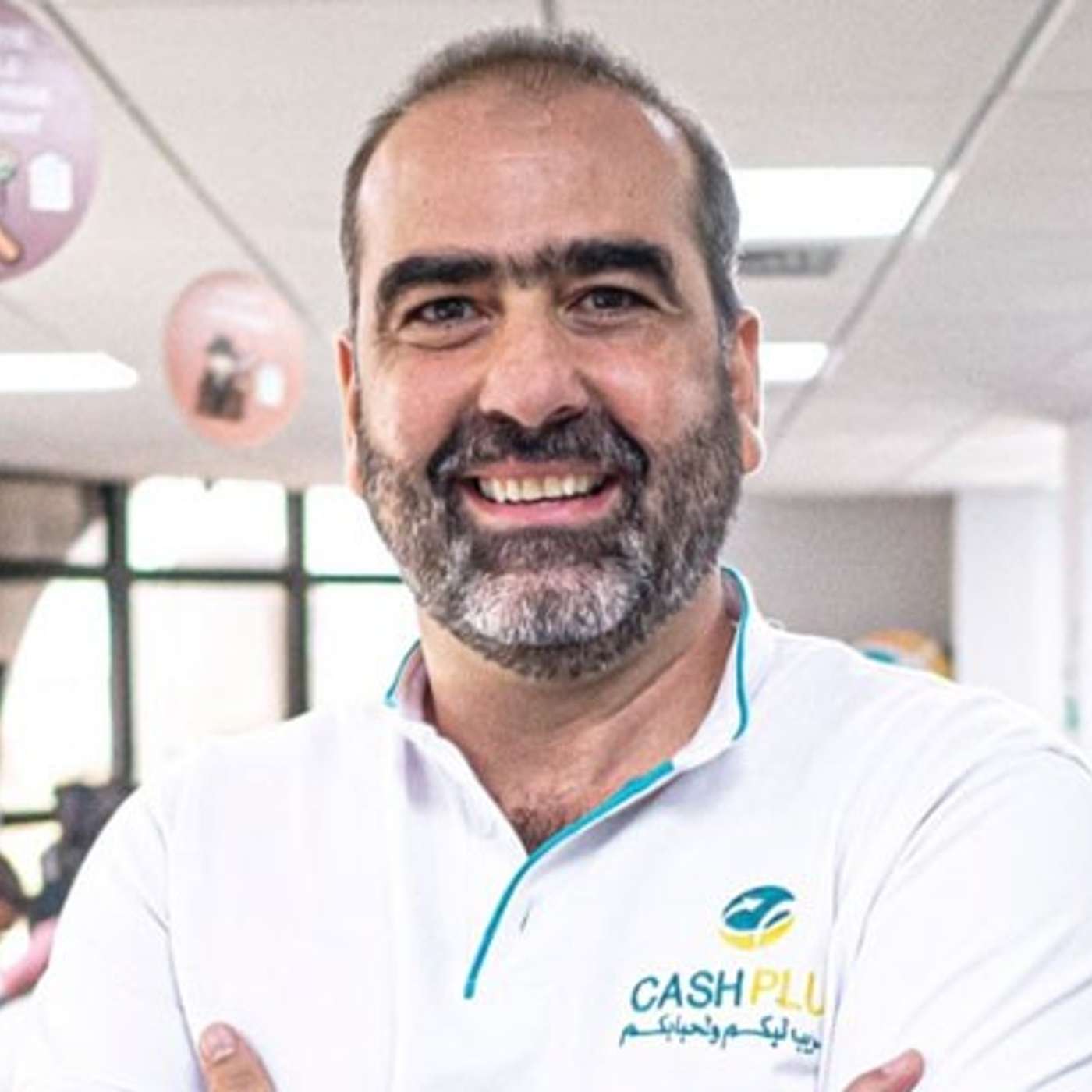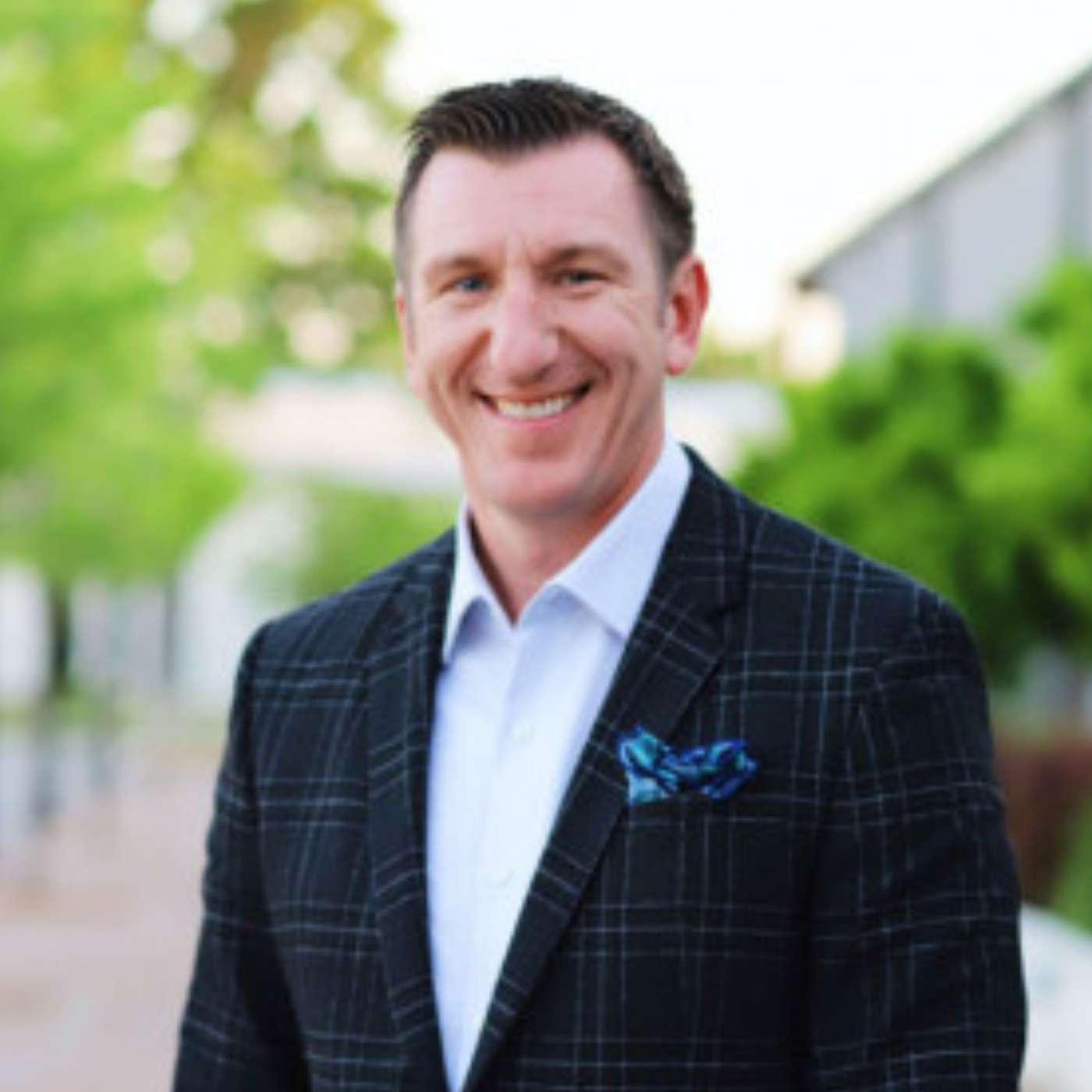Discover Voice of FinTech®
Voice of FinTech®

Voice of FinTech®
Author: Rudolf Falat
Subscribed: 32Played: 2,896Subscribe
Share
© E-mail us at: info@voiceoffintech.com. All rights reserved.
Description
Aiming to inspire entrepreneurs around the world to launch their new ventures. Connect FinTech enthusiasts with start-ups, incubators, accelerators, investors and incumbents.
346 Episodes
Reverse
Ron Benegbi, founder and CEO of Uplinq, a unique credit-scoring solution for SMEs, spoke with Rudolf Falat, founder of the Voice of FinTech podcast, about how to make credit scoring for SMEs smarter while working alongside existing solutions.Here is what they talked about in more detail:Ron's background and experienceRon's reasons for starting his businessWhat is Uplinq? What problem do they solve?What is Uplinq's unique advantage? How do they differ from other credit scoring solutions? Business modelTarget customersLocationsThe very first steps in starting this ventureWhere are you in your journey regarding product development, geographic reach, funding, and hiring? Can you share any numbers?What are your next steps for this year and beyond? Where can interested parties contact you? Uplinq site orRon Benegbi on LinkedIn
Krik Gunning, co-founder and CEO of Fourthline, a Dutch KYC and AML scale-up, spoke with Rudolf Falat, founder of the Voice of FinTech podcast, about its proprietary technology, helping its clients to build a fourth line of defence against bad actors. In more detail, Krik discusses his extensive international background and transition from investment banking to entrepreneurship. He elaborates on the origins and innovative solutions of Fourthline, a company specializing in anti-fraud and KYC (Know Your Customer) solutions tailored for financial institutions. Fourthline, initially a part of Safened, addresses regulatory compliance with a unique AI-driven, cloud-native platform that integrates multiple checks to offer a seamless and secure onboarding experience. Krik also highlights Fourthline's deep regulatory knowledge, in-house proprietary technology, and focus on user experience as key differentiators. The company leverages AI to continuously improve and adapt to evolving fraud techniques, ensuring the safety of user identities and financial assets. The conversation also touches upon future plans, including embracing gen AI advancements and adapting to upcoming European regulatory changes. Krik invites interested parties to connect with him on LinkedIn (see Krik Gunning) or visit Fourthline's website for more insights.
Harry Mamaysky, Professor at Columbia Business School and Chief Investment Officer at QuantStreet Capital, spoke with Rudolf Falat, founder of the Voice of FinTech podcast, about AI potential for investment management and asset allocation.Here is what they covered:Harry – what's your background? How did you get to what you do today? Why re-join academia?Why are we now going through the AI revolution? Where are we in terms of adoption? Is general AI on the horizon? Will everyone be affected by AI?Why is letting AI trade by itself unlikely to work? How can AI be useful in investing?How correct are AI models? What would AI (Gemini) answer for asset allocation questions?What's the confidence level of such an answer?Are the answers factually correct? When mistakes are made, how grave are they?Do LLMs know about real-time news?How about systematic investing? Can you provide an example of QuantStreet's asset allocation architecture?What are the things that AI doesn't know about?What are your recommendations for resources from which to learn more about AI in Finance? What's the best way to reach out? QuantStreet Capital (website), newsletter, e-mail: hello@quantstreetcapital.com or Harry Mamaysky on LinkedIn
Tamás Varga, PhD, founder of q-edu-lab.com, spoke with Rudolf Falat, founder of the Voice of FinTech podcast, about the educational game he invented, Niels' Chess, which teaches the principles of quantum physics through the game of chess. Here is what they talked about:How did Tamas get to do what he does todayBrief explanation of the basic principles of quantum, and especially quantum computing, e.g., superposition, entanglement, random collapse, unitary transformation, and a bit of quantum interference in some variantsDiscussed what would constitute a working, i.e., useful quantum computerWhy is it taking so long to build one?Where does the name Niels' chess come from?How does it work, and why did you pick chess as a basic game to explain it? See the picture of the moves on the podcast website here.How can a game like this generate revenue, and who is it intended for?Ìs there an online version?Milestones aheadThe best way to reach out - through LinkedIn on Tamás Varga, PhD
Kamal Hassan, Managing Partner at Loyal VC, spoke with Rudolf Falat, founder of the Voice of FinTech podcast, about backing INSEAD and Founder Institute alums (mainly) worldwide with a unique approach.Here is what they covered: Kamal, can you briefly introduce yourself?Can you describe Loyal VC - what does it do? Where are you based?Are you global? How much money have you facilitated since inception, and for how many growth companies? How many investors?What kind of growth companies have you invested in? What’s your onboarding approach? E.g., minimum size of the stakeWhat are your best tips for aspiring founders to grow their companies?How do you find investment opportunities and investors? What are your selection criteria?Can you share success stories of the growth companies you invested in?What’s your favorite business book (or another learning source)?Wrap up: What’s the best way to reach out? Check out www.loyal.vc
Nathaniel (Nathan) Powell, founder at Deep Market Making spoke with Rudolf Falat, founder of the Voice of FinTech podcast, about leveraging AI to make pricing models for bond markets better than ever. Here is what they discussed in more detail: Nathan, tell us how you got to where you are today.Many people recently opened up to AI with the advent of GenAI. But AI has been with us for much longer, right? Why has GenAI, in particular, gained such traction vs. traditional AI?What problem are you solving at Deep Market Making, and why is it worth solving?What is your solution and your unique selling point?Who are your key clients? Can you tell us some case studies of the successful implementation of your solution?What’s your technology angle? What kind of AI are we talking about?How do we navigate the unique risks and challenges posed by AI, especially in financial markets?What are the milestones you want to achieve next?What’s your favorite business book? Zero to One: Notes on Startups, or How to Build the Future by Peter ThielWhat’s the best way to reach out: Nathaniel (Nathan) Powell (LinkedIn) or e-mail: nathan@deepmm.com
Tobias Wohlfarth, Chief Business Officer (CBO) at Obligate, an on-chain regulated bonds platform based in Switzerland, spoke with Rudolf Falat, founder of the Voice of FinTech podcast, about bringing private debt opportunities to more investors by leveraging blockchain.Here is what they discussed in more detail: Tobias' journey to the entrepreneurship worldWhy Tobias joined ObligateWhat is Obligate? What problem is Obligate trying to solveTheir unique advantage - how is Obligate different from digital assets exchangesBusiness model - how does Obligate make moneyTarget customersLocations of staff and customersHow did Obligate scale?Where is Obligate on their journey nowWhat are Obligate's next steps for this year and beyond? Where can interested parties contact you? Website: https://www.obligate.com/ or Tobias on LinkedIn here.
In this episode, Dorra Mahbouli speaks with Rinse Jacobs, former Solaris executive and now CEO of Zazu, the rising B2B fintech reshaping SME banking in Africa. Zazu is building Africa’s first finance super-app, offering a unified platform that addresses the fragmented, outdated financial tools SMEs currently rely on.With over 44 million underbanked SMEs across the continent and a $5.1 trillion credit gap in emerging markets, Zazu positions itself as the go-to digital banking solution for SMEs—combining payments, finance management, and credit access in one place. Backed by VCs and built by FinTech veterans, Zazu is now expanding beyond South Africa into other African and MENA markets to support SME growth at scale.Find it here or reach out to Rinse on LinkedIn.
Chris Ball, CEO and founder of Hoxton Wealth, spoke to Rudolf Falat, founder of the Voice of FinTech podcast, about building an internationally focused wealth manager from the ground up.Here is what they discussed in more detail:Chris, tell us how you got to do what you do today.Future of wealth management - how technology meets personalized adviceThe problem Hoxton Wealth is helping clients with and whyNuances of the wealth management industry in the Middle East vs. the UK or the USWhat is the key advice for advisors working with international clients to achieve their goals The first steps with Hoxton - How did Chris get his first 100 clientsLater on, how did Chris scale Hoxton from a start-up to managing $2.1 billion in assetsWhat is Hoxton's unique advantage - How is it different from large, global international wealth managersCan you recommend a favorite business book or another resource for continuous learning? Extreme Ownership: How U.S. Navy SEALs Lead and Win and 80/20 Daily: Your Day-by-Day Guide to Happier, Healthier, Wealthier, and More Successful Living The best way to reach out: find Chris Ball on LinkedIn
Maude Baudier, CEO and founder of Smatchy, a sports community app, spoke to Rudolf Falat, founder of the Voice of FinTech podcast, about a community for doing sports together and partnering with businesses to build engagement with their consumers through sports.Here is what they talked about:Maude's backgroundWhy did Maude decide to start your own company? What is Smatchy? What is the problem that Smatchy is trying to solveWhat is its unique advantage? How is it different from other sports partner apps?How does Smatchy make money?Who Smatchy's target customersKey locationsThe very first steps to get going as a businessWhere is Smatchy now on its journey regarding product development, geographic reach, funding, and hiring?What are the Smatchy's steps for you this year and beyond? Customers, incumbents as partners, investors?The best way to reach out: LinkedIn: Maude Baudier, or website Smatchy (apps links there)
Hagen Lihl, co-founder of Upgrid and recent graduate of the Tenity Acceleration Program, spoke to Rudolf Falat, founder of the Voice of FinTech podcast, about a platform for harnessing solar energy in your neighborhood.Here is what they talked about in more detail:Hagen, can you introduce yourself?Why have you decided to start your own company?What is the problem that you are trying to solve? What is Upgrid? What are the issues you’re addressing to change that?How are you different from traditional energy providers?How do you make money?Who are your target customers? How big is the Swiss market, and what about regulation?Where are you based?How have you started with your venture? What were your very first steps?Where are you on your journey regarding product development, geographic reach, funding, and hiring? Can you share any numbers?What are the next steps for you this year and beyond? Customers, incumbents as partners, investors?Where can interested parties reach you? Check out the website or reach out to Hagen Lihl on LinkedIn.
This episode of Voice of FinTech, the MENA Series hosted by Dorra Mahbouli, features Martin Della Chiesa, co-CEO of Skaleet, a FinTech innovator providing scalable and configurable core banking solutions. The podcast explores Skaleet's vision of empowering banks to modernize their digital offerings while maintaining adaptability for local market needs. Key sections include discussions on Skaleet's MENA expansion strategy, navigating regional regulatory challenges, and their role in advancing financial inclusion. Highlighted use cases, such as BMCI Mauritania's digital bank launch and Trust Merchant Bank's digital transformation in the DRC, demonstrate Skaleet's ability to create tailored, agile solutions. Skaleet's platform is a robust enabler for financial ecosystems and banks aiming to build the next generation of digital products and services.
Amos Kimani, CEO and co-founder of the Tausi app, spoke to Rudolf Falat, founder of the Voice of FinTech podcast, about how he built a platform for beauticians in Kenya, South Africa, and Tanzania.Here is what they covered: Amos's journey from a musician to a start-up founderWhat is Tausi and the problem that it solvesWhat is Tausi's unique advantage? How is it different from other freelancers, including beauty or lifestyle-oriented platforms?How does Tausi make money?Who are Tausi's target customersTausi's key marketsHow did Amos start with this venture - what were his first steps?Where is Tausi on its journey regarding product development, geographic reach, funding, and hiring? What are the next steps for you this year and beyond? Customers, incumbents as partners, investors?Where can interested parties reach you? LinkedIn or email and phone.
Liz Steblay, solopreneur success author, advocate, speaker, & mentor, spoke to Rudolf Falat, founder of the Voice of FinTech podcast, about becoming a successful solopreneur. Here is what they talked about:Liz, tell us how you got to do what you do today.So, say you are thinking about going solo. How do you find out if it’s the right path for you?How to figure out the steps to get started?In a competitive market, standing out is everything. How do you master the art of branding, marketing, and business development to build the solo career you’ve always dreamed of?Let’s also talk about building wealth. Want to keep more of what you earn? What are your recommended strategies to optimize taxes and maximize income while growing your solo business?You have written a book, Succeeding as a Solopreneur. In addition to what we just discussed, can you hint at the six keys to successful self-employment you describe in the book?The best way to reach out and find out more: Liz Steblay on LinkedIn or the website and the book: https://www.sixkeys.info/
Dr. Karen (PHD) Wendt, President of the Swiss FinTech Ladies, spoke to Rudolf Falat, founder of the Voice of FinTech podcast, about angel investing training to close the gender gap in investing and wealth.Here is what they covered:Karen explained what led her to start the SFTL associationWhat does SFTL do?SFTL key activities, training, and educationHow do business angels, VCs, and CVCs differ?Why is business angel investing training needed?What are key takeaways from your training, including the main dos and don'ts of presenting to investorsKey advice for aspiring business angelsFurther recommended sources: Onvista, Handelsblatt, NZZ, BloombergEvents: check out Swiss FinTech LadiesContact
In the latest episode of Voice FinTech: Africa Series, Patrick Awori, CEO of Imaginarium, sits down with Tawanda Wenyika, Business Development Executive at EFT Corporation and Caroline Kitema, Growth Manager at Absa Bank, to explore the technological advancements reshaping the future of banking. The episode was recorded at the KOFISI Podcast Studio.
Dr. Karen (PHD) Wendt, President of the Swiss FinTech Ladies, and Mahnoosh Mirghaemi, CEO and founder of Colivar, spoke to Rudolf Falat, founder of the Voice of FinTech podcast, about modern wealth management approaches, leveraging technology such as AI, catering specifically to underserved groups like women, and the role that SFTL plays in closing the gender wealth and investment gap.Here is what they covered in more detail: Mahnoosh, how are you today? Can you tell us about your entrepreneurial journey?What is Colivar? What is the problem you are trying to solve? What is the SFTL, and how is it connected to Colivar?What is Colivar's unique advantage?Tell us about the SFTL activities and eventsWhat’s your view on leveraging AI in Wealth Management, and what kind of AI?Wealth Management and Private Banking require increasingly high minimum scales to be viable. How do start-ups fit into this?Robo advisers had a lot of promise, but not many survived as standalone businesses. What is your view on this?What works for HNWI and UHNWI as opposed to retail and affluent clients?Where are you on your journey regarding product development, geographic reach, funding, and hiring? What are the next steps for you this year and beyond? Customers, incumbents as partners, investors?Where can interested parties reach Karen and Mahnoosh: SFTL and Colivar, respectively.
Ennio Limbach – Brun del Re, founder and CEO of Zurichberg, an alternative investment and co-ownership platform focused on watches, spoke to Rudolf Falat, founder of the Voice of FinTech podcast, about why it is needed and how it works.Here is what they discussed in more detail:Ennio's journey towards building new products and businessesWhy has he decided to start his own companyWhat is Zurichberg? What is the problem that it is aiming to solve?What is their unique advantage? How is it different from other alternative investment platforms or watch co-ownership platforms?How they make moneyTarget customersHQ in Zurich, Switzerland, and teamKey milestones aheadBest way to get in toch: Ennio Limbach – Brun del Re (LinkedIn) or Zurichberg (website)
In this episode of the Voice of FinTech, the MENA Series hosted by Dorra Mahbouli spoke to Hazim Sebbata, Cash Plus's Director General (DG), a prominent financial services company in Morocco. He plays a significant role in the company's operations, focusing on enhancing and diversifying the financial services available to Moroccans. Under his leadership, Cash Plus has introduced various innovative solutions, including a partnership with Mastercard to facilitate international online shopping for Moroccan users.In addition to his role at Cash Plus, Sebbata is actively involved in the financial sector as the President of the Association Professionelle des Etablissements de Paiement (APEP), representing payment institutions in Morocco. His contributions to the industry emphasize the importance of innovation and digital transformation in financial services.Before his tenure at Cash Plus, Sebbata's career included various roles within the financial industry, contributing to his extensive financial management and strategic planning expertise.
Derrick Kinney, founder of Success For Advisors, Top Leadership Voice for financial advisors on LinkedIn, spoke to Rudolf Falat, founder of the Voice of FinTech podcast, about how financial advisors can grow their business.Here is what they covered:Derrick's journey from financial advisor to leadership speaker and consultantWhat problem is Derrick helping financial advisors with, and whySome highlights of advice to financial advisors given by Derrick how to: Crush their revenue goals and build the business they've always wantedDiscover their generosity purpose, so they experience purpose and meaning in their livesBecome the sought-after specialist in their community by "owning a relatable problem."Attract ideal prospects and high-quality referrals that are excited to work with themInsulate client relationships from the competitionThey also discussed what's the best way to find HNWI client prospects todayHow to manage the conversion from a prospect to a clientDerrick's thoughts on the retention of clients and managing churnHow to reconcile financial advisors' goals and the suitability of financial products for their clientsHow to manage advisors' lives and careers and prevent burnout Can you recommend a favorite business book or another resource for continuous learning? The Richest Man in BabylonThe best way to reach out and find out more is to find Derrick Kinney on LinkedIn



